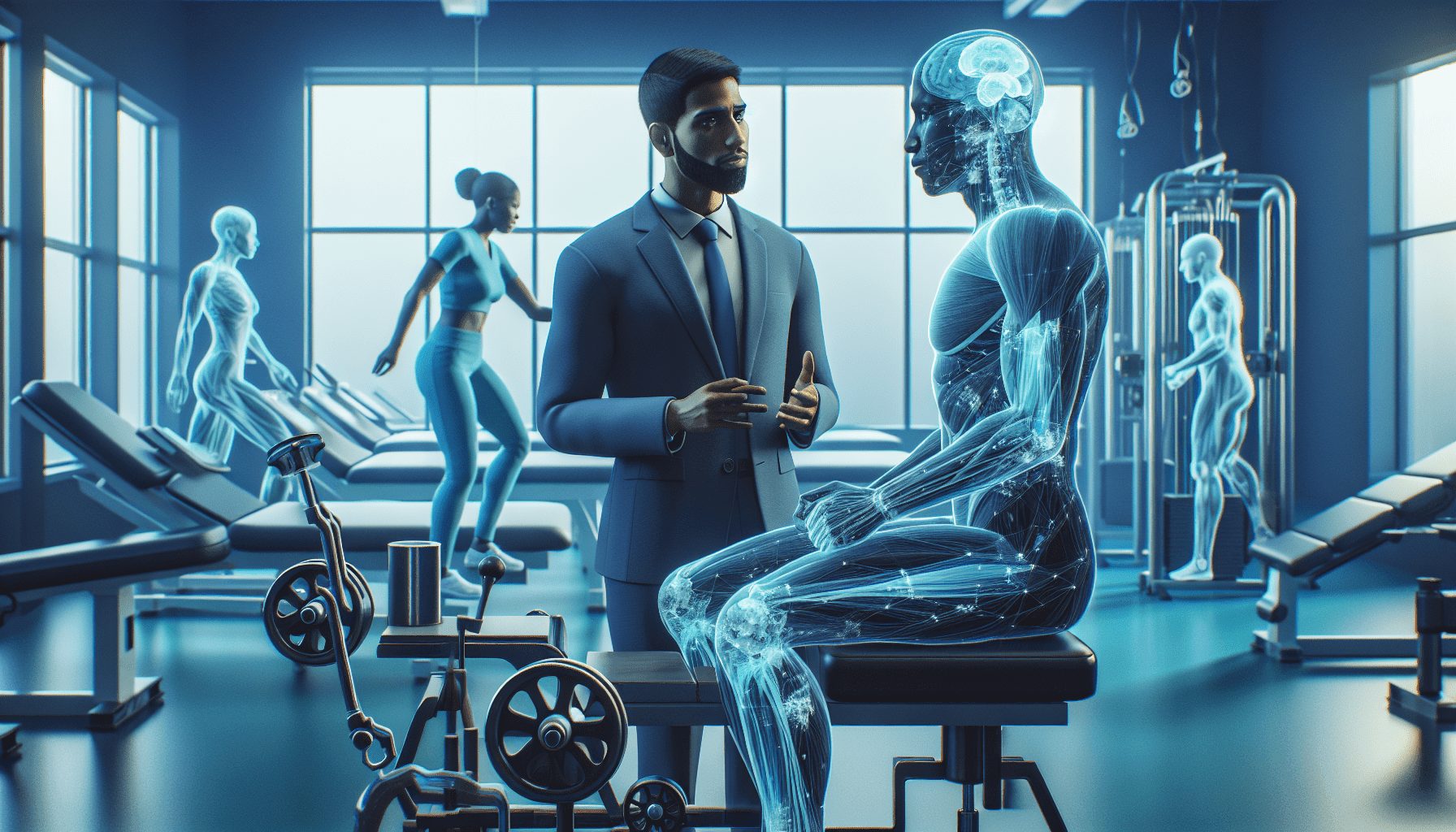Using AI in Recruitment: How They Utilize AI Recruiter
Explanation of AI in recruitment
In the fast-paced world of recruitment, staying ahead of the competition is crucial. That’s where Artificial Intelligence (AI) comes into play. AI has revolutionized the recruitment industry, transforming the way organizations find and hire top talent. By leveraging advanced algorithms and machine learning, AI in recruitment streamlines and optimizes the hiring process, making it more efficient and effective than ever before.
In recruitment, AI refers to using intelligent systems and algorithms to automate and enhance various aspects of the hiring process. These AI-powered tools and technologies assist recruiters in sourcing, screening, interviewing, and selecting candidates. By leveraging AI, recruiters can save time and effort, allowing them to focus on strategic tasks and making well-informed decisions.
The benefits of using AI in recruitment are manifold. Not only does it improve efficiency, but it also enhances candidate screening, enables data-driven decision-making, and enhances the overall candidate experience. This article will delve deeper into these benefits, explore how AI recruiters work, address common concerns, and provide best practices for implementing AI in recruitment. So, let’s dive in and uncover the power of AI in revolutionizing the hiring landscape.
Benefits of Using AI in Recruitment
In today’s fast-paced and competitive job market, companies constantly search for innovative ways to streamline recruitment processes and find the best talent. One such innovation that has revolutionized the hiring landscape is using Artificial Intelligence (AI) in recruitment. By leveraging AI recruiting tools, organizations can reap many benefits that enhance their efficiency, decision-making, and candidate experience.
Improved Efficiency
One of the primary advantages of using AI in recruitment is the significant improvement in efficiency. Traditional recruitment methods often involve manual tasks such as resume screening, candidate sourcing, and interview scheduling, which can be time-consuming and prone to human error. However, AI recruiter software can automate these processes, saving recruiters valuable time and enabling them to focus on more strategic aspects of talent acquisition. By leveraging AI algorithms, recruiters can swiftly analyze vast data, identify qualified candidates, and streamline the hiring process.
Enhanced Candidate Screening
Another key benefit of using AI in recruitment is the enhanced candidate screening process. When faced with a large pool of applicants, manually reviewing each resume can be daunting and time-consuming. However, AI-powered resume screening tools can quickly scan and analyze resumes, identifying relevant skills, qualifications, and experience. These tools use natural language processing and machine learning algorithms to match candidate profiles with job requirements, ensuring that recruiters efficiently identify the most suitable candidates. This saves valuable time and improves the quality of candidate selection by reducing bias and increasing objectivity.
Data-Driven Decision Making
AI in recruitment enables data-driven decision-making, empowering organizations to make informed choices based on accurate and comprehensive data. By leveraging AI, recruiters can gather and analyze vast amounts of candidate and job market data, identifying trends, patterns, and insights that can inform their hiring strategies. This data-driven approach helps in optimizing recruitment efforts, identifying the most effective sourcing channels, and predicting future talent needs. By making data-based decisions, companies can minimize the risk of bias and subjectivity and make more accurate predictions about candidate success and cultural fit.
Enhanced Candidate Experience
The candidate experience plays a crucial role in attracting and retaining top talent. AI in recruitment can significantly enhance the candidate experience by streamlining and personalizing the hiring process. Organizations can automate candidate communication with AI-powered tools, providing timely updates and feedback. Chatbots and virtual assistants can assist candidates by answering frequently asked questions and guiding them through the application process. Additionally, AI can help tailor job recommendations and personalized career development opportunities based on a candidate’s skills and preferences. By leveraging AI, companies can create a seamless and personalized experience for candidates, leaving a positive impression and increasing the likelihood of successful hires.
In conclusion, the benefits of using AI in recruitment are far-reaching. From improved efficiency and enhanced candidate screening to data-driven decision-making and an enhanced candidate experience, AI-powered recruiting tools transform how organizations attract and hire talent. By incorporating AI into their recruitment processes, companies can gain a competitive edge, save time and resources, and ultimately secure the best candidates for their organization.
To learn more about AI in recruitment and explore the top AI recruiting tools, check out Engaged Headhunters, an AI recruitment agency specializing in AI-based recruitment solutions.
AI Recruiter: How It Works
In the fast-paced world of recruitment, staying ahead of the competition is crucial. That’s where the AI recruiter comes into play. This cutting-edge technology revolutionizes the hiring process, making it more streamlined, efficient, and accurate. Let’s take a closer look at how AI recruiter works and the key functionalities it offers.
Resume Screening
One of the most time-consuming tasks in recruitment is the resume screening process. Going through stacks of resumes can be overwhelming for even the most seasoned recruiter. However, with an AI recruiter, this process becomes a breeze. Using sophisticated algorithms and natural language processing, AI recruiters can quickly scan and analyze resumes to identify the most qualified candidates.
AI recruiter goes beyond keyword matching and considers the context, skills, experience, and qualifications mentioned in the resumes. By leveraging AI candidate sourcing, it can identify potential candidates from various sources, including job boards, social media platforms, and professional networks. This saves recruiters countless hours and ensures no talented individual slips through the cracks.
Interview Scheduling
Coordinating interviews with candidates can be a logistical nightmare. Multiple emails, scheduling conflicts, and missed opportunities can cause frustration for both recruiters and candidates. Thankfully, AI recruiter streamlines the process with its interview scheduling capabilities.
By integrating with calendar systems and leveraging artificial intelligence, the AI recruiter can automatically suggest available time slots based on the availability of both the recruiter and the candidate. This eliminates back-and-forth communication and ensures that interviews are scheduled efficiently. Additionally, AI recruiter can send automated reminders to both parties, reducing the chances of missed appointments.
Predictive Analytics
In today’s data-driven world, making informed decisions is paramount. This is where the power of predictive analytics comes into play. AI recruiter utilizes advanced algorithms to analyze vast data and identify patterns and trends. By leveraging these insights, recruiters can make data-driven decisions throughout the hiring process.
From predicting a candidate’s success to forecasting hiring needs, AI recruiter becomes an invaluable tool for recruiters and organizations. It enables them to optimize recruitment strategies, allocate resources effectively, and identify the best candidates for a specific role.
In conclusion, AI recruiter is revolutionizing the recruitment landscape. With its capabilities in resume screening, candidate sourcing, interview scheduling, and predictive analytics, it enhances the hiring process’s efficiency, accuracy, and effectiveness. By leveraging the power of AI recruiter, recruiters can focus on what truly matters – finding the best talent for their organizations.
To learn more about AI in recruitment, check out our article on AI Recruiter.
Common Concerns about AI in Recruitment
As with any emerging technology, the use of AI in recruitment comes with its fair share of concerns. Addressing these concerns is important to ensure a fair and ethical recruitment process. Let’s take a look at some common concerns that arise when utilizing AI in recruitment:
Bias and Fairness
One of the primary concerns surrounding AI in recruitment is the potential for bias and unfairness. AI systems are trained using historical data, which may contain biases. If the training data is biased, the AI recruiter may inadvertently discriminate against certain candidates based on gender, race, or age. This poses a significant challenge in promoting diversity and equal opportunities.
To mitigate this concern, it is crucial to carefully curate and review the training data to ensure it is representative and unbiased. Additionally, ongoing monitoring and auditing of the AI system can help identify and address potential potential biases.
Privacy and Security
Another concern related to AI in recruitment is the privacy and security of candidate data. AI recruiters often rely on vast amounts of personal information from candidates, such as resumes, social media profiles, and online applications. Safeguarding this data is essential to protect candidates’ privacy and prevent unauthorized access or misuse.
Organizations must adhere to strict data protection regulations and implement robust security measures to safeguard candidate information. This includes encryption, access controls, and regular audits to ensure compliance. Transparency and clear communication with candidates about data usage and protection are vital to building trust and maintaining a positive candidate experience.
Human Interaction
While AI recruiters offer numerous benefits, there is a concern that they may replace human interaction in the recruitment process. Many candidates value connecting with a human recruiter, asking questions, and receiving personalized feedback. The fear is that relying solely on AI may diminish the human touch and leave candidates feeling disconnected.
To address this concern, organizations should balance AI automation and human interaction. Leveraging AI in recruitment should enhance efficiency and effectiveness without eliminating the human element. Human recruiters can still play a crucial role in building relationships, conducting interviews, and providing the personalized touch that candidates appreciate.
By acknowledging and addressing these common concerns, organizations can ensure that the use of AI in recruitment is fairly secure and maintains a positive candidate experience. It is essential to strike a balance between the capabilities of AI and the human touch to create a recruitment process that is both efficient and empathetic.
Best Practices for Implementing AI in Recruitment
When implementing AI in recruitment, several best practices can help organizations maximize the benefits and overcome potential challenges. By following these guidelines, companies can ensure a smooth transition to AI-powered recruiting and make the most of the technology.
Set Clear Goals and Objectives
Before integrating AI into the recruitment process, it’s crucial to establish clear goals and objectives. This involves identifying specific pain points or areas that AI can improve, such as time-consuming resume screening or inefficient candidate sourcing. By defining these goals, organizations can align their AI implementation strategy and measure the success of the technology.
Choose the Right AI Recruiter Tool
Selecting the right AI recruiter tool is a critical step in the implementation process. Various AI recruiting tools are available, each with its own features and capabilities. Evaluating and comparing different options is essential to find the tool that aligns with the organization’s needs and objectives. Factors to consider include accuracy, scalability, integration capabilities, and user-friendliness. Engaged Headhunters, an AI recruitment agency, offers a comprehensive range of AI recruiting software and tools that can streamline the recruitment process.
Provide Training and Support
Implementing AI in recruitment requires training and support for both recruiters and candidates. Recruiters should receive proper training on effectively utilizing AI tools and interpreting the insights generated by the technology. Additionally, candidates should be informed about the AI-powered aspects of the recruitment process to alleviate any concerns and ensure transparency. By investing in training and support, organizations can empower their teams to make the most of AI and enhance the overall recruitment experience.
Regularly Evaluate and Optimize
AI in recruitment is not a one-time implementation; it’s an ongoing process that requires continuous evaluation and optimization. Organizations should regularly assess the performance of the AI recruiter tool and make necessary adjustments to improve its effectiveness. This involves analyzing recruitment metrics, collecting feedback from both recruiters and candidates and identifying areas for enhancement. By continuously optimizing the AI system, organizations can stay ahead of the curve and ensure their recruitment process remains efficient and effective.
In conclusion, implementing AI in recruitment can bring numerous benefits to organizations, but it’s important to follow best practices to maximize its potential. By setting clear goals, choosing the right AI recruiter tool, providing training and support, and regularly evaluating and optimizing the system, organizations can harness the power of AI to streamline their recruitment process and enhance their overall talent acquisition strategy.
Conclusion
In conclusion, using AI in recruitment has revolutionized the hiring process, providing numerous benefits and opportunities for organizations. By leveraging AI recruiter tools, companies can enhance their efficiency, improve candidate screening, make data-driven decisions, and enhance the overall candidate experience.
One of the key advantages of using AI in recruitment is its improved efficiency. With AI-powered tools, recruiters can automate time-consuming tasks such as resume screening, candidate sourcing, and interview scheduling, allowing them to focus on more strategic aspects of the hiring process. This saves time and ensures a faster and more streamlined recruitment process.
AI also plays a crucial role in enhancing candidate screening. By analyzing large volumes of data and applying sophisticated algorithms, AI recruiter tools can identify the most qualified candidates based on specific criteria, reducing the chances of bias and ensuring a fair selection process. This saves recruiters time, improves the quality of hires, and increases diversity within organizations.
Data-driven decision-making is another significant advantage of utilizing AI in recruitment. By analyzing vast amounts of data, AI-powered tools can provide valuable insights and predictions, enabling recruiters to make more informed decisions. Whether identifying the most effective sourcing channels or predicting candidate success, AI empowers recruiters to make strategic choices that positively impact their talent acquisition strategies.
Furthermore, AI contributes to enhancing the candidate experience. With AI-powered chatbots and virtual assistants, candidates can receive personalized and prompt responses to their queries throughout recruitment. This improves communication, reduces candidate frustration, and leaves a positive impression of the organization, even for those who may not be selected for the position.
While there are common concerns surrounding the use of AI in recruitment, such as bias and fairness, privacy and security, and the potential lack of human interaction, it is important to note that these issues can be mitigated with proper implementation and oversight. Organizations must ensure that AI tools are designed to be fair and unbiased, adhere to privacy regulations, and maintain a balance between automation and human touch.
To successfully implement AI in recruitment, it is crucial to follow best practices. Setting clear goals and objectives, choosing the right AI recruiter tool, providing training and support to recruiters, and regularly evaluating and optimizing the AI system are essential to ensure successful integration. Organizations should also consider partnering with AI recruitment agencies like Engaged Headhunters, who leverage AI technology to streamline hiring and find the best talent.
In conclusion, AI has become an indispensable tool in the recruitment industry, enabling organizations to overcome traditional hiring challenges, improve efficiency, and make more informed decisions. As technology advances, AI in recruitment will only become more prevalent, reshaping the way organizations attract and select top talent. By embracing AI recruiter tools and implementing best practices, companies can stay ahead of the competition and build high-performing teams for long-term success.







